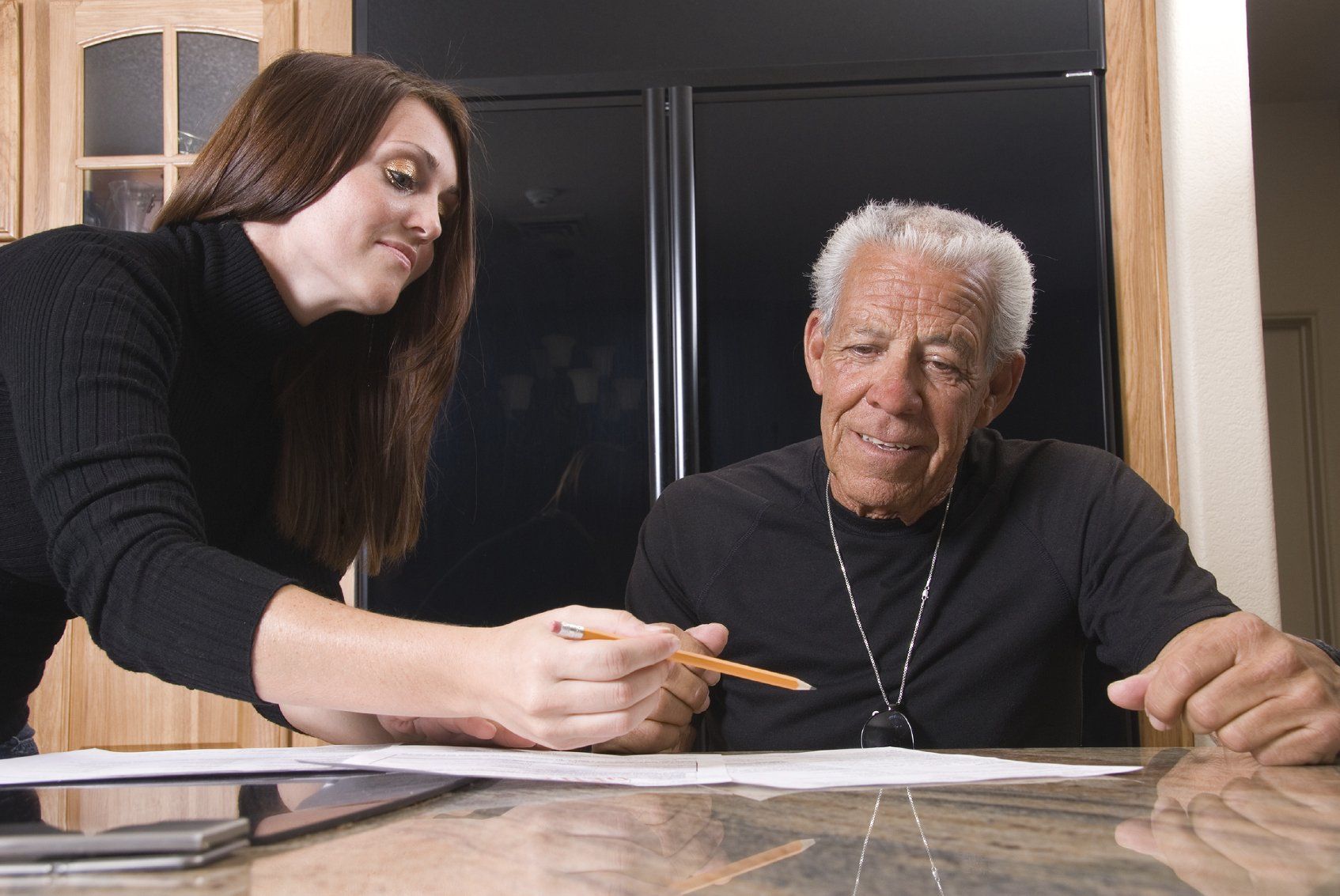A Homebuyer’s Guide To Earnest Money
Earnest money may not be the most well-known component of a home purchase, but it’s nonetheless an important one. The aptly named “good faith” payment is an important reminder that the real estate industry is not immune to negligence or malicious activity. More importantly, however, it provides a relative system of checks and balances which attempts to hold buyers and sellers to their word. Though small, a good faith deposit carries large implications, which begs the question: What is earnest money? Better yet, how can buyers navigate their own earnest money deposits and protect their financial interests?
What Is Earnest Money?
Earnest money is a deposit made on behalf of prospective homebuyers to express their sincerity in following through with a purchase. Otherwise known as a good faith deposit, earnest money is essentially a safety measure put in place to protect sellers after each side of a real estate transaction enters into a purchase agreement. If for nothing else, the seller needs some reassurance that the buyer will follow through with the purchase. In return for taking the home off the market (and risking a financial hit), the buyer will provide an earnest money payment which is typically equal to 1% – 3% of the sale price. As a deposit, the payment is held in an escrow account until the deal is complete. Upon closing the deal, the seller will return the cash to the buyer. If the deal falls through, the seller is entitled to keep the money if the previously agreed upon criteria are met.
How Earnest Money works
More often than not, the cash is delivered to sellers when the impending buyer signs a purchase agreement. At that time, the seller will pull the home off the market and take on financial risk, so it’s only fair that that buyer puts some “skin in the game.” That said, there’s no reason prospective buyers couldn’t include the funds with their initial offer. In a market as competitive as today’s, the addition of cash with an offer could go a long way in beating out the competition. Those considering including a good faith payment with the offer to make it look more attractive will want to put up enough money to seem serious, but not so much as to put excess capital at risk.
Including an earnest money deposit with an offer will show sincerity, but it can also be a bit premature. If for nothing else, the seller will typically want to be included in the negotiations, which set the terms of the good faith payment. As a result, terms are usually discussed at the time the purchase agreement is signed. The terms will determine how much of a good faith payment will be deposited and the terms which will unlock it from escrow. Terms will include contingencies that allow the buyer to get the money back if they don’t buy the home. For example, a buyer may receive their deposit back if the home doesn’t pass inspection.
Once the seller receives the deposit, the earnest money is transferred into an escrow account, where it is held until the criteria which unlock it is met. Since the purchase agreement is contingent on several things, it does not obligate the buyer to follow through with a purchase. Still, the contract will require the owner to take the home off the market while it’s appraised and inspected. The owner may be losing out on subsequent offers in that time, so the earnest money serves as a bit of a safety net.
If the buyer pulls out of a transaction, the seller will most likely be able to keep the cash. There are extenuating circumstances that will enable the buyer to recoup their deposit, but those terms are unique to each contract. If the buyer can follow through with the transaction, the cash may be applied to the down payment and closing costs.
Example Of Earnest Money
Let’s say, for example, Louise has finally saved up enough money to place a down payment on her first house, and she’s ready to make the leap to homeownership. Over the course of looking for a house, she stumbles across the perfect property in a neighborhood she has always dreamed of living in. At $100,000, the house is within her budget, so Louise decides to make an offer. Thanks to a well-written offer letter, the homeowner agrees to sell to Louise and enters into a purchase agreement.
When the agreement is signed, the owner is required to take the home off the market so it may be inspected and appraised. Louise agrees to negotiate an earnest money deposit in return for the financial risk being placed on the homeowner by taking their home off the market.
The negotiations require Louise to pay an earnest money deposit of 1.0% (or $1,000). The terms also state that Louise will get her money back if the deal falls through because of a failed inspection or the appraisal brings up some red flags. Finally, the homeowner will keep the deposit if Louise doesn’t follow through on the purchase.
With the terms set, Louise pays the earnest money deposit with a wire transfer directly into an escrow account that is held by the real estate brokerage dealing with the transaction. The money will sit in the escrow account until the agreed-upon terms unlock it. Fortunately for Louise’s sake, the home passed inspection, and the appraisal was what she expected. Louise closed the deal when all was said and done and applied the money to the closing costs she incurred. In the end, Louise got the house she always wanted, and the seller got the peace of mind they needed.
How Much Earnest Money Is Enough?
To be clear, there’s no universal rule for exactly how much to offer as an earnest money deposit. Instead, the amount of cash prospective buyers should offer is directly correlated to the current state of the real estate market. A slow market without much competition, for example, poses less of a risk to sellers who take their homes off the market when a purchase agreement is signed. As a result, the earnest money won’t need to be a significant amount. On the other hand, a competitive market implies the seller will miss out on multiple offers when they take their home off the market. Therefore, it’s only fair that the deposit is increased in active markets. While most earnest money deposits will rest somewhere in the neighborhood of 1% – 3% of the sale price, it’s entirely possible the amount increases in more competitive markets.
Does Earnest Money Get Refunded?
Earnest money may be refunded to a buyer when agreed upon contingencies are met. With that in mind, here’s a list of the most common reasons earnest money may be refunded:
- Home Inspection Contingency: Cash may be refunded to the buyer if the contract includes a home inspection contingency and the subject property fails the inspection. If for whatever reason, the inspection is to blame for the buyer backing out of the deal, the home inspection contingency may result in a refund of the earnest money.
- Appraisal Contingency: An appraisal contingency helps protect buyers from homes which are overvalued. Therefore, if an appraisal comes in well below the sales price, the buyer may withdraw from the purchase and receive their earnest money in full.
- Financing Contingency: In the event a buyer never receives approval for financing, a financing contingency may allow them to get their earnest money deposit back when they pull out of a deal.
- Existing Home Contingency: Some contingencies are subject to the sale of an existing home. This particular contingency states that a buyer may back out of a deal if their current home does not sell, depriving them of the funds necessary to make a subsequent purchase. If that’s the case, the buyer may also get their earnest money back.
Can A Seller Keep Earnest Money?
A seller may keep earnest money if any of the terms in the purchase agreement are broken. More specifically, however, the purchase agreement will outline the terms of the earnest money deposit. As a signed agreement, the prospective buyer is obligated to follow the terms which were agreed upon by each party. Therefore, if the buyer breaks any of the terms they agreed to adhere to, the seller is entitled to the deposit. If, for example, the buyer pulls out of a deal for no reason at all, the seller can keep the earnest money they are owed (as long as the terms say as much).
How To Protect Your Earnest Money
Protecting earnest money has more to do with following the terms of a purchase agreement than anything else. It is the terms of the agreement which will serve as the basis of protection. With that in mind, however, the best way to protect your money is to write up an air-tight contract that gives buyers the greatest odds to recoup their money in the event unexpected circumstances occur.
Contracts aren’t going to write themselves, which means buyers need to know what to include. Here’s a list of the steps buyers can take to protect their earnest money deposits:
- Put the money in an escrow account
- Include contingencies in the purchase agreement
- Follow the terms of the purchase agreement
- Make sure everything is in writing
1. Use An Escrow Account
Every purchase agreement should include a detailed account of where earnest money will be held. While most earnest money deposits are held in an escrow account, it is possible to hold it with a title company or legal firm. Nonetheless, any good faith money must go through an account controlled by an unbiased third party. The real estate market isn’t immune to fraud, and enlisting the services of a third-party account will go a long way in securing each party’s capital.
Typically, the buyer will pay by one of three methods: certified check, wire transfer, or personal check. Whichever method is used, the payment should be made out to the third-party account; that way, they can distribute the funds whichever way the purchase agreement dictates.
2. Understand Your Contingencies
Protecting earnest money starts and ends with the purchase agreement. However, it’s not enough to understand the terms agreed upon. Buyers need to negotiate for the terms they want to see in the purchase contract. Of course, that starts with knowing what contingencies may be included in a purchase agreement. Therefore, buyers will want to research all of the contingencies that give them the best odds of getting their money back and try their best to get them into the contract.
In addition to adding contingencies, buyers need to understand exactly what they mean. Only when a buyer is fully aware of what each contingency requires will they be able to truly protect their deposit. It isn’t until a buyer knows how to meet their obligations that they’ll be able to tilt the odds in their favor.
3. Don’t Miss Your Deadlines
A large part of protecting an earnest money deposit has to do with adhering to deadlines. Buyers who do what they say within the allotted time frame and follow the terms of the purchase agreement are the only ones who stand a chance of getting their money back. Therefore, work within the rules of the contract and do not miss deadlines if you ever want to see your earnest money again.
4. Put Everything In Writing
Again, it all comes down to the purchase agreement. The purchase agreement represents a contract between buyers and sellers and outlines exactly how the earnest money will be dealt with. As such, everything buyers and sellers negotiate pertaining to the good faith payment will need to be included in the purchase agreement. Anything left off the agreement means nothing, so do not simply “shake on it” or take anyone for their word.
Summary
What is earnest money, if not for a promise on behalf of buyers that they intend to see the purchase of a home through to the end? Of course, in its simplest form, earnest money is essentially a down payment that divulges a buyer’s intentions. However, at its pinnacle, an earnest money deposit is a contract between two parties that facilitates honest transactions. When terms are followed, earnest money can simultaneously help buyers in a competitive market and give sellers the peace of mind they need to accept an offer.
Source: Keeping Current Matters
Dusty Rhodes Properties is the Best Realtor in Myrtle Beach! We do everything in our power to help you find the home of your dreams. With experience, expertise, and passion, we are the perfect partner for you in Myrtle Beach, South Carolina. We love what we do and it shows. With more than 22 years of experience in the field, we know our industry like the back of our hands. There’s no challenge too big or too small, and we dedicate our utmost energy to every project we take on. We search thousands of the active and new listings from Aynor, Carolina Forest, Conway, Garden City Beach, Longs, Loris, Murrells Inlet, Myrtle Beach, North Myrtle Beach, Pawleys Island, and Surfside Beach real estate listings to find the hottest deals just for you!
Share





